Recasting refers to giving a metal object new life by melting it down and reforming it. By taking Shakespeare out of the classroom and putting the experience of Shakespeare into the hands of those working with the text with a focus on embodiment, we give a new form to the old work.
Restorying is positioning the stories in relation to ourselves and taking liberty with our own interpretations of characters, plotlines, and subtexts to make the story meaningful to a modern community.
Restructuring the current power inherent in Shakespeare’s works allows us space to practice envisioning the world in which we wish to live. Not only do Shakespeare’s themes and stories uphold structural power, but Shakespeare is often used as a tool of western, imperial, white supremacy. For instance, Shakespeare’s first role in the classroom was as public speaking practice in rhetoric and elocution, which we know has been used to maintain control over Black children’s speech patterns. However, by restructuring the norm of putting Shakespeare on a pedestal, we can begin to dismantle larger systems of power.
My project built upon many traditions of reimagined Shakespeare, and applied theories across educational disciplines to a performance project with the goal of deepened self-awareness and sense of self-in-community. I specifically focused on the role of embodied exercises not as a tool for understanding the text, but for understanding the self and community. Through the lens of Brazilian Marxist educator Paolo Freire’s “liberating education,” I argue that grappling with historical power structures deepens understanding of modern power structures and personal-political identities. And so, the touchstone guiding my work is a quote from Freire. In the seminal Pedagogy of the Oppressed, he posits “there’s no such thing as neutral education. Education either functions as an instrument to bring about conformity or freedom.” Or, to paraphrase Hamlet, “There is nothing either good or bad, but [teaching] makes it so.”
The Process
Macbeth has been at the forefront of my mind for a few years; I was particularly interested in Macbeth as a “rehearsal for the revolution,” watching an attempt at government-overthrow go wrong and watching characters fight back against fascism. In Macbeth, the characters are royalty—princes and lords. How did the proletariat fight back?
The rehearsal process was divided into three parts: exploration of themes/community identity, creation and workshop of material, and compiling material and polishing the show. While a lot of the curriculum I drew upon stemmed from positive experiences interviewees had with Shakespeare education, I held their negative experiences in my mind too. Many of the participants in the project had studied theatre at the high school or college level, some even working as theatre professionals for a period of time. Many of them had experienced marginalization from their Shakespeare education and/or the professional theatre industry in some way. The most important outcomes of my project were for participants to have a joyful time being in community, and to feel like they had something unique and important to add to the Shakespearean tradition. To do this, I set an expectation from the first rehearsal that this was not an adaptation of a Shakespeare play, but a response to it. I was clear with participants that I was interested in their thoughts and experiences more than the original text. When a participant expressed dissatisfaction with something that happens in the original play, I reiterated that disagreeing with the text was celebrated. I also didn’t participate in reflective writing or scene creation, but drew others’ writings together as a facilitator and organizer. I didn’t want to guide the conversation more than I already was as the leader of the project. These principles allowed us to position ourselves as experts in relation to the text—not because of any official Shakespeare training, but because of everyone’s own experiences. We were co-constructing an understanding of the play anchored in the community identity that had formed. As radical doula adrienne maree brown says in Emergent Strategy, “There is a conversation in the room that only these people at this moment can have. Find it.” The story told in the devised piece was a reflection of individual and group identity, which rejects conformity in Shakespeare education.
Before rehearsals even begun, we had recast the play into something uniquely ours.
Recasting
The first phase began in February 2023 with monthly “text parties.” Participants came to my house and I cooked a meal for everyone. We sat in the living room and played with, manipulated, rearranged, discussed, and rejected monologues and quotes from Macbeth. In an exercise I learned from JD Stokely—a self-described “trickster-in-training” and theatre studies scholar—called “aggravating the text,” we manipulated original Shakespeare text into found poems. This was an informal gathering with friends and strangers, some of whom continued with the process and signed up to participate in the show, others who didn’t. The poems written at the text parties were used in the final show and as source materials for dialogue. Shakespeare was played with and changed to tell the story the participants felt was most important. Before rehearsals even begun, we had recast the play into something uniquely ours. Positioning the play as a jumping off point rather than a final product changed the goal from understanding Shakespeare to understanding the self and community, which is the goal of liberatory education.

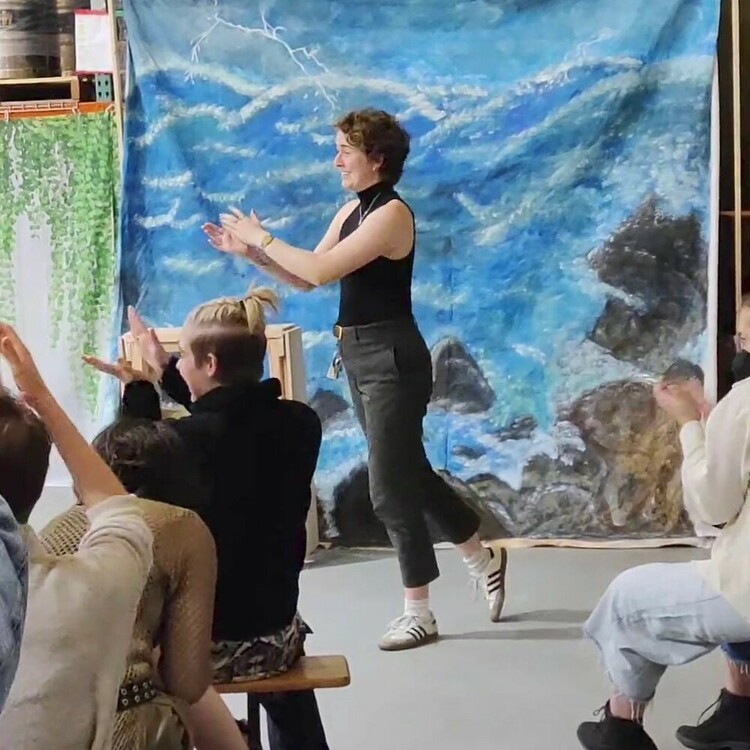
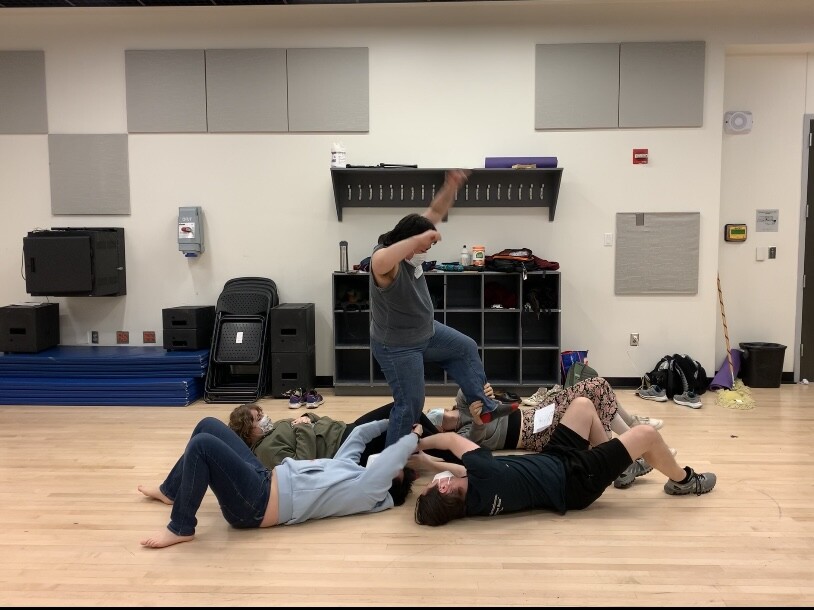
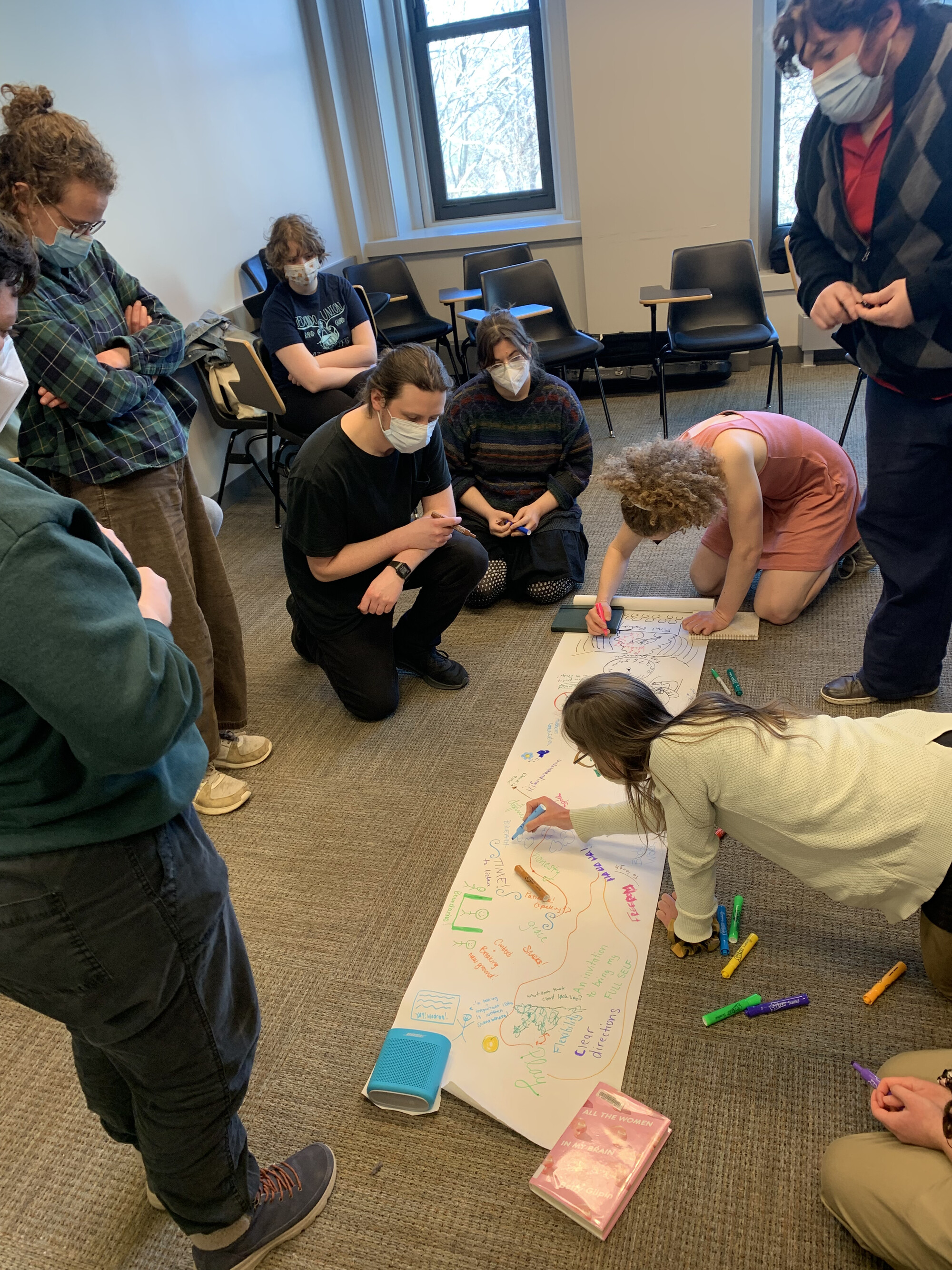
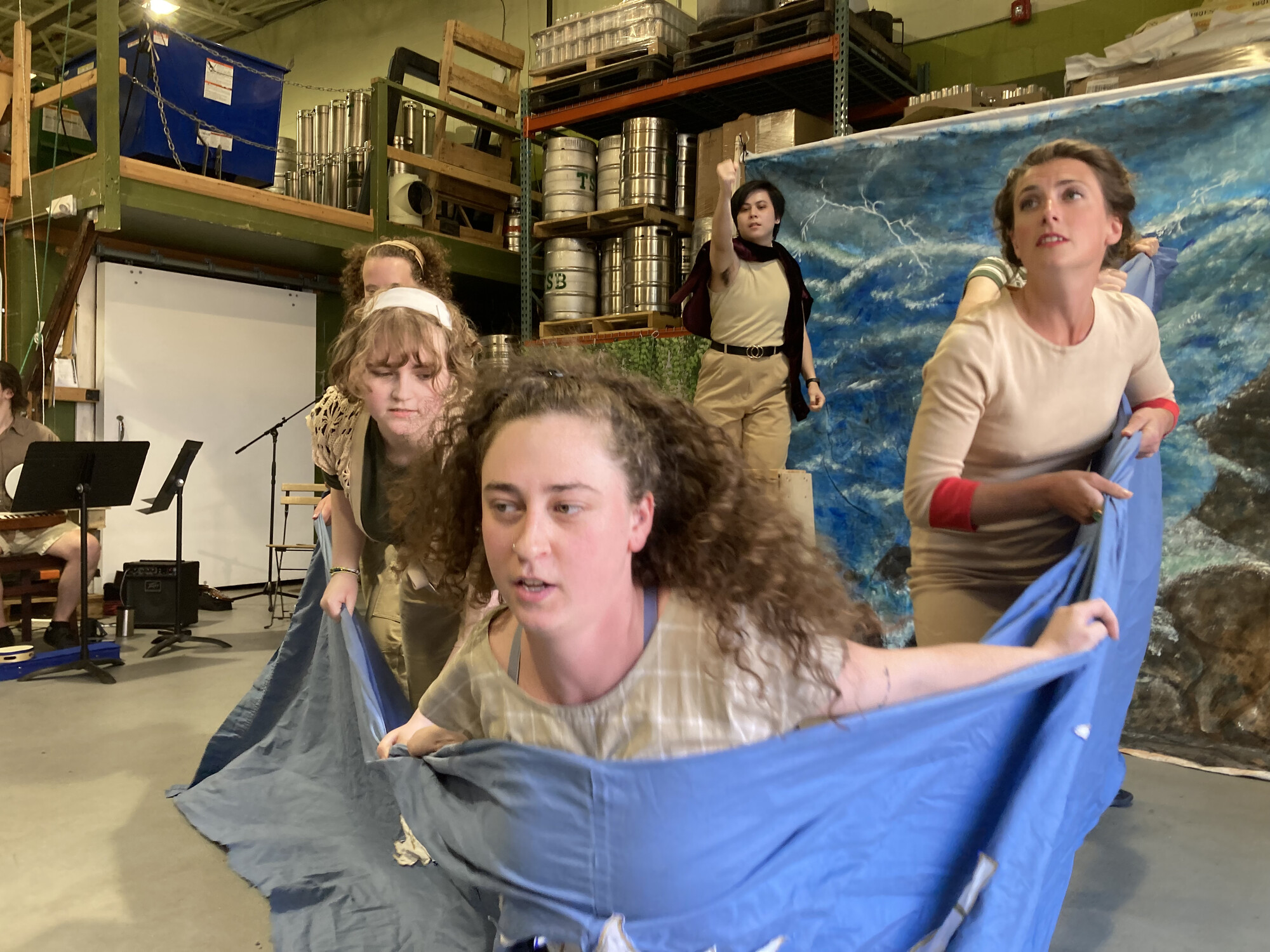
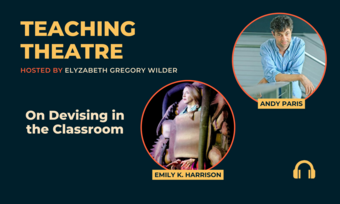



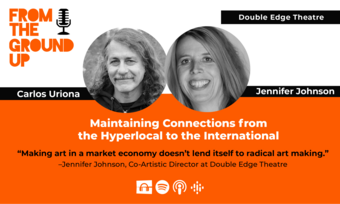







Comments
The article is just the start of the conversation—we want to know what you think about this subject, too! HowlRound is a space for knowledge-sharing, and we welcome spirited, thoughtful, and on-topic dialogue. Find our full comments policy here
Bravo Rainier! Such thoughtful insights from this project and your research
This was such a cool project to be a part of! The opportunity to recast this story really helped me fall back in love with Doing theatre.
This was such a cool project to be a part of! The opportunity to recast this story really helped me fall back in love with Doing theatre.
Deeply thought and inspiring for reclaiming Shakespeare's narratives and bringing them into the present, liberating artists and audiences alike. Seeing this performance, I left with images and sounds that I thought of for months to come! Let's rehearse this revolution, baby!
oh man, I remember seeing this show back in may. amazing cast, music, puppets. how cool to learn about the creation process! i completely agree, we need to find liberatory ways to teach this stuff that's in our educator's curriculums. thanks for laying out your process so succinctly and adding to the field!
I couldn't agree more!